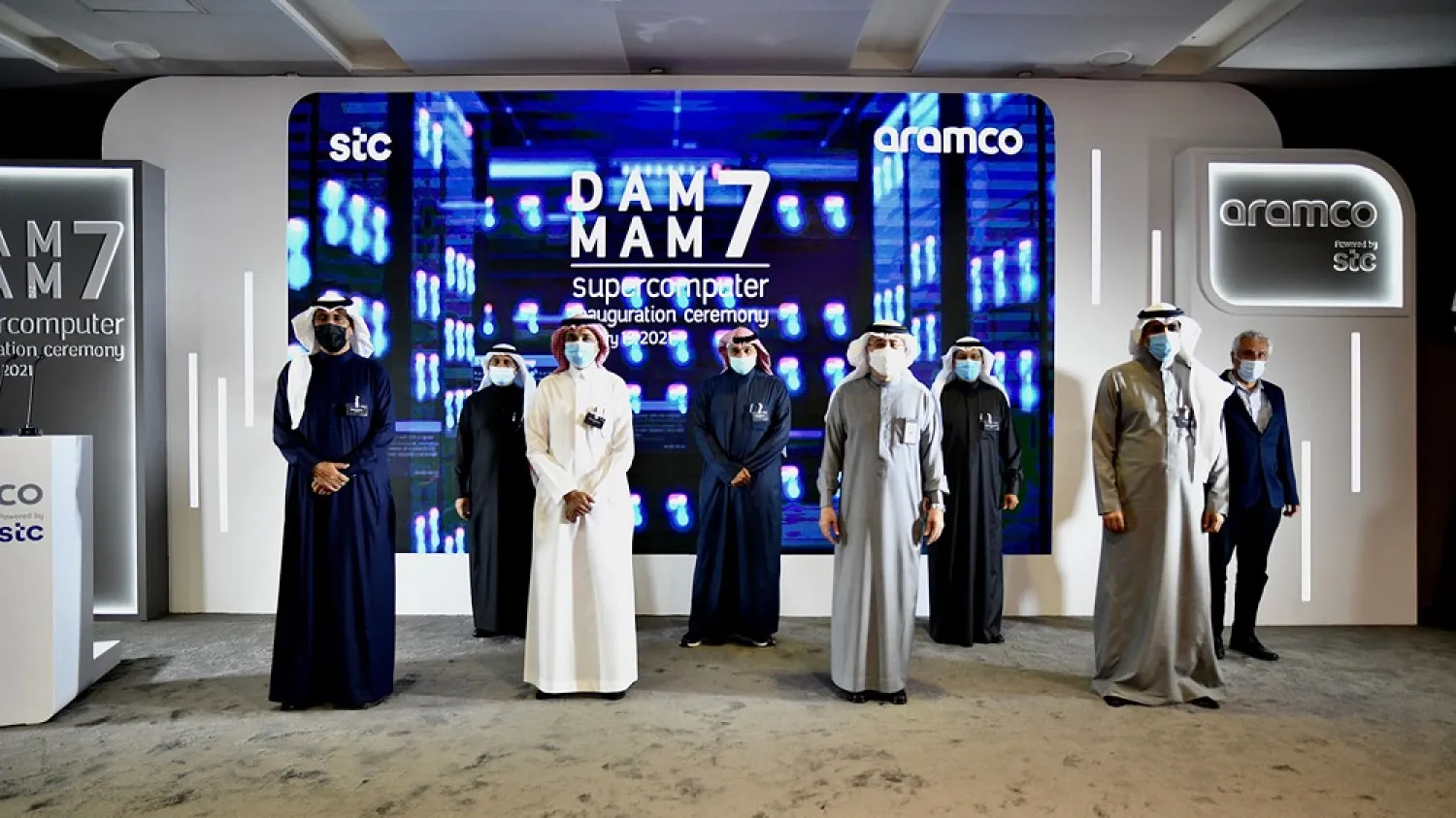Top Saudi companies launched a new supercomputer, Dammam 7, which can process and image the world’s largest geophysical datasets and is considered among the top ten most powerful in the world.
Saudi Aramco and the Saudi Telecom Group (STC) announced the new high-speed computer which presents new opportunities in both exploration and development and enhances investment decisions.
Dammam 7 is the next step in Aramco’s digital transformation, including a number of advanced technologies that are reshaping major operations, increasing efficiencies, and reinforcing the company’s industry leadership in geoscience, read a statement obtained by Asharq Al-Awsat.
Dammam 7 was developed at Dhahran Techno Valley in partnership with STC’s Solutions, and CRAY, a Hewlett Packard Enterprise subsidiary. It has 55.4 petaflops of peak computing power, allowing it to process and image the world’s largest geophysical datasets.
It will push beyond the traditional boundaries of exploration and production through cutting edge technology, according to the statement.
“Sophisticated imaging and deep-learning algorithms will allow it to run very detailed 3D earth models, improving the Company’s ability to discover and recover oil and gas while reducing exploration and development risks,” it said.
In addition, the supercomputer will enhance decision-making for the exploration and development of conventional and unconventional hydrocarbon resources, as well as guide future investments in production and resource allocation.
Speaking on the occasion, Aramco President and CEO, Amin Nasser, explained that Dammam 7 is named after the first commercial oil well discovered in 1938.
He said it will help with breakthroughs as part of Aramco’s long term “Discovery and Recovery” strategy in its Upstream business.
“This technology that processes complex data faster will enable new discoveries and enhanced recoveries, which are crucial to both ensuring the availability of adequate supply to meet the demand for energy and to cut costs while boosting productivity,” he continued.
Nasser described Dammam 7 as “another step in our plan to invest in the right technology that drives production efficiency and resilience.”
CEO of STC Group CEO, Nasser al-Nasser, stated that the inauguration of the supercomputer data center in Aramco will open up new horizons in exploration, which will have a significant impact on data digitization and quality.
“These are in line with the digital transformation plans of the desired national outlook, and we are proud to have worked with locals to establish Dammam 7 Center,” he added.









